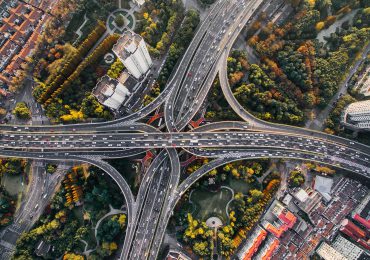Barry Ritholtz says that America needs to undertake a major infrastructure repair and rebuilding program, which would stimulate the economy and provide a number of other benefits.
“We have allowed the transportation grid to get old and out of shape,” Ritholtz writes in a Washington Post op-ed. “Our interstate highway system is in disrepair; our bridges are rusting away, with some collapsing now and then. The electrical grid is a patchwork of jury-rigged fixes, vulnerable to blackouts and foreign cyberattacks. The cell system of the United States is a laughingstock versus Asia’s or Europe’s coverage. There are very few things that are done better by government mandate than by the free market, but cell coverage is one of them. Broadband, almost as laughable as our cell coverage, is another.”
Ritholtz says a recent American Society of Civil Engineers report gave America’s infrastructure a D. “To get to an ‘A’ would require a five-year infrastructure investment of $2.2 trillion dollars,” he says — and he thinks it might be well worth it. Unlike the stimulative spending increases and tax cuts that the government has used to try to spark the economy, infrastructure improvement programs “leave something worthwhile behind,” Ritholtz says. “We still enjoy the benefits of the interstate highway system, which allows goods to be moved cheaply around the nation. Innovations at NASA led to many new products and industries, including innovations in the semiconductor, satellite and mobile computing sectors. And DARPAnet? You might recognize that as today’s Internet. All three are massive economic wealth generators, filling a role that is too long term and too expensive for the private sector.”
Ritholtz offers a number of suggestions for where he’d focus in repairing the nation’s infrastructure — and how he’d pay for it. Among the areas in need of help: the electrical grid; roads, bridges, and tunnels; airports; ports; and alternative energy. Countries all around the world, including China, Japan, and Germany, have extensive infrastructure programs in place, he says. “We in the United States are willing to spend trillions in Iraq and trillions more bailing out reckless bankers,” he says. “But when it comes to the most basic functions of civilization, we skimp on ourselves. Does that make any sense?”





